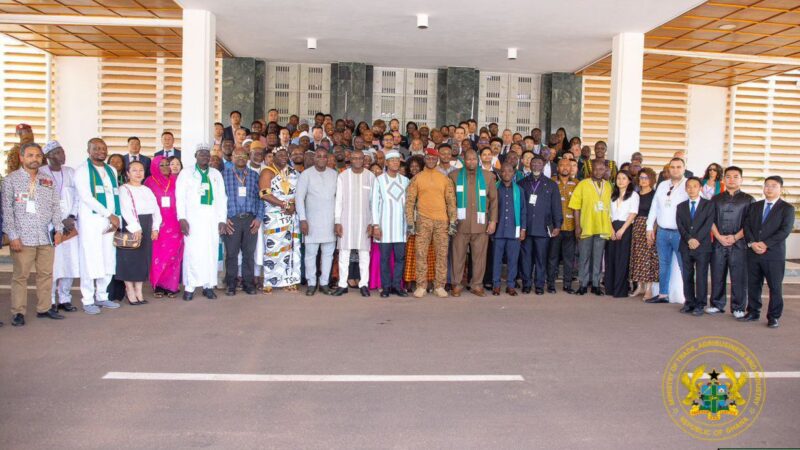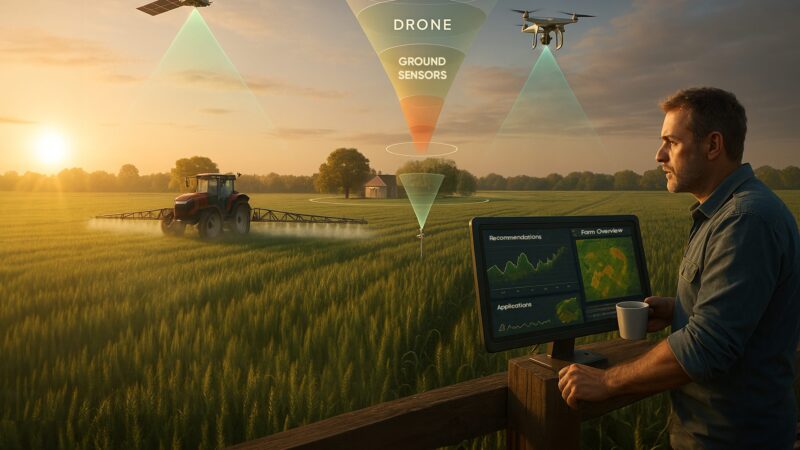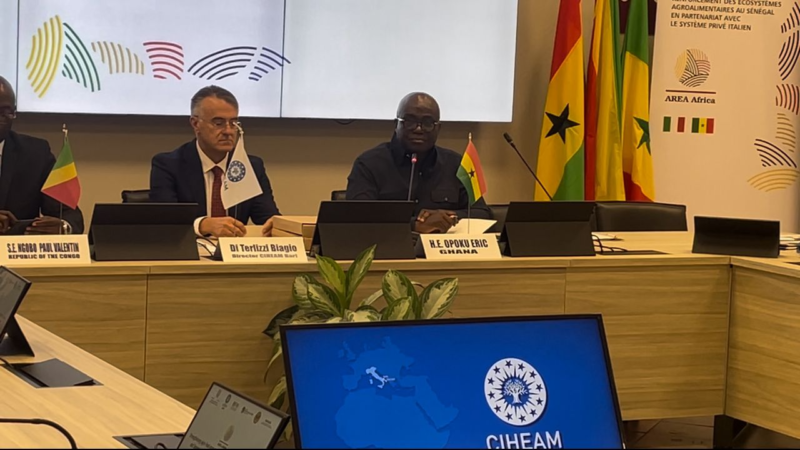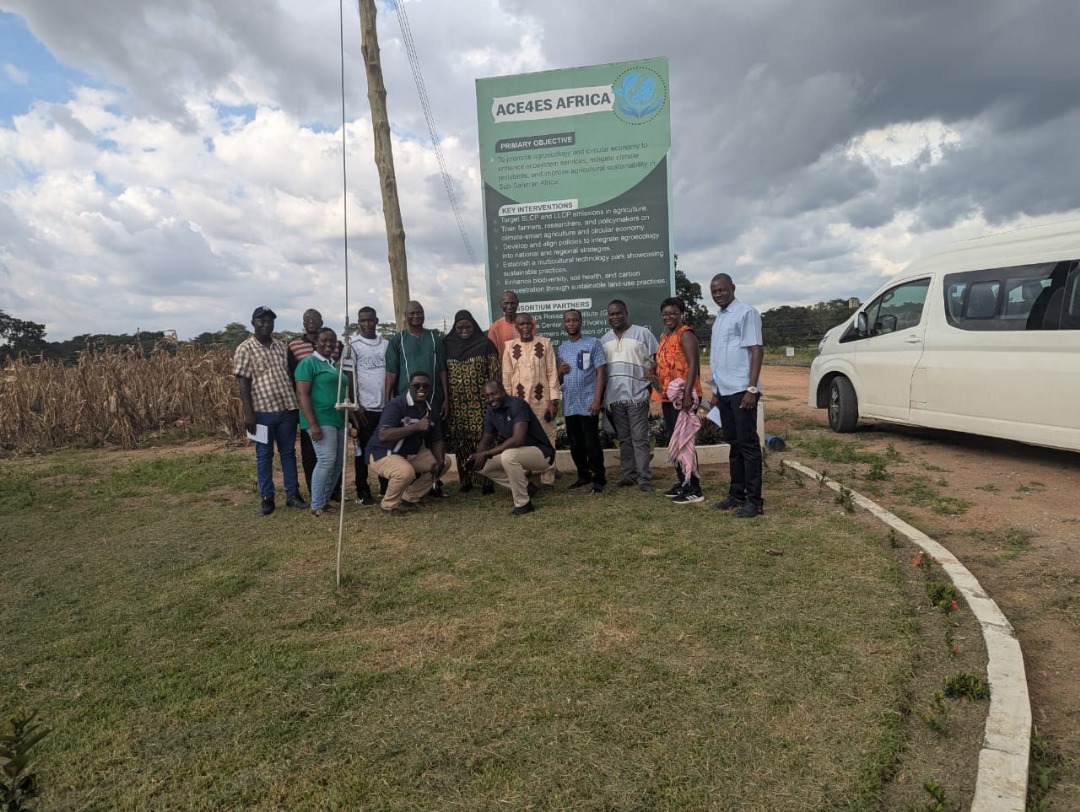
Fumesua, Ashanti Region
The Council for Scientific and Industrial Research–Crops Research Institute (CSIR–CRI) has hosted a nine-member delegation from the Republic of The Gambia on a two-day scientific and technical visit aimed at enhancing agricultural research collaboration and knowledge exchange between Ghana and The Gambia.
The visit, held from 23rd to 24th September 2025, formed part of the Gambia Inclusive and Resilient Agriculture Value Chain Development Project (GIRAV), funded by the World Bank and implemented through the National Agriculture Research Institute (NARI) and the National Seed Secretariat (NSS), with coordination support from the West and Central African Council for Agricultural Research and Development (CORAF).
Purpose and Focus
Approved by the Director-General of CSIR, the visit sought to expose Gambian scientists, seed specialists, and mechanical technicians to Ghana’s advanced agricultural research systems, value-chain integration, and technology innovations. It was designed to strengthen The Gambia’s institutional capacity to implement the GIRAV project through practical learning from Ghana’s research, mechanization, and agroecological experiences.
Leadership and Coordination
The study visit was coordinated by Dr. Charles Afriyie Debrah, Head of Protocol at CSIR–CRI, who led the team through a series of technical tours and institutional engagements. The delegation was received at the Institute’s Fumesua and Kwadaso stations, where scientists under the Rice Breeding Program and the Agroecology and Circular Economy for Ecosystem Services (ACE4ES) Project facilitated demonstrations and field discussions.
Institutions and Sites Visited
During the two-day visit, the team engaged with key research and industry partners, including:
- Kwame Nkrumah University of Science and Technology (KNUST) – Faculty of Agriculture, Department of Agricultural and Biosystems Engineering, Department of Animal Science, and the Institute of Distance Learning.
- Premium Foods Limited, Kwaso – to observe industrial-scale grain processing, value addition, and quality assurance systems.
- Ghana Grains and Legumes Development Board (Asuoyeboah) – to understand Ghana’s seed certification and regulatory mechanisms.
- Ministry of Trade and Industry – Technology Solution Centre (Konongo) – under the Rural Enterprise Programme, where local fabrication and mechanization technologies are developed to support smallholder productivity.
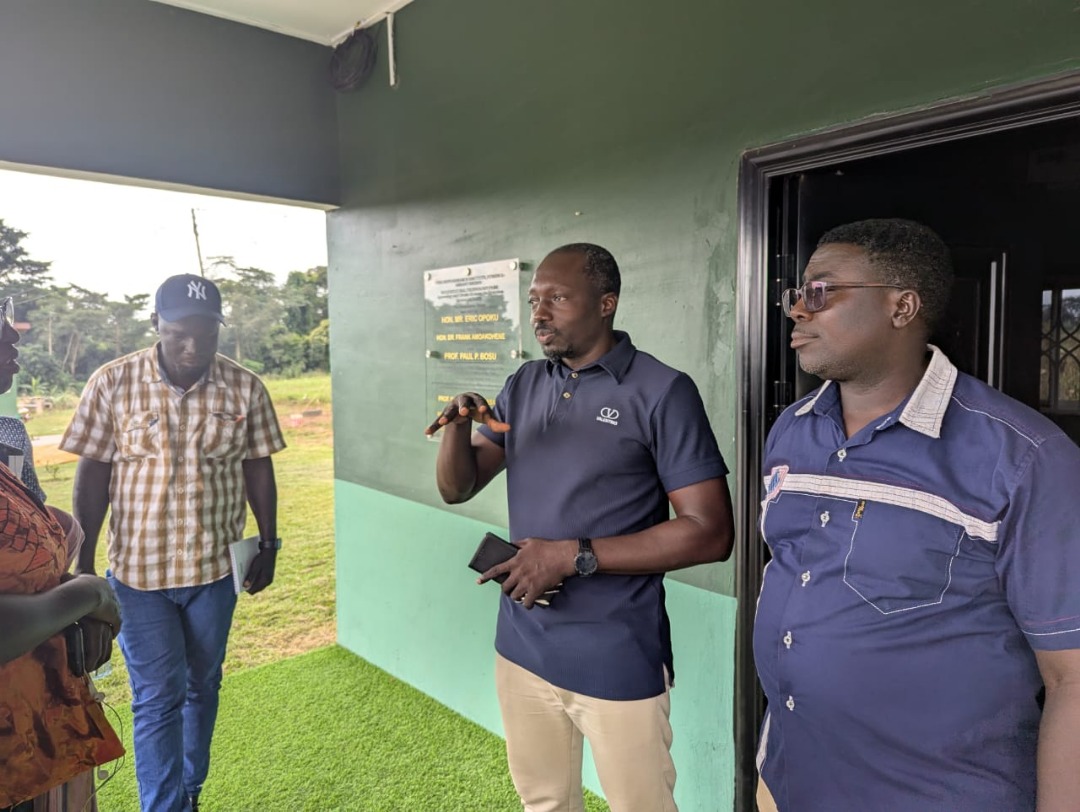
ACE4ES Multicultural Technology Park Demonstration
A major highlight of the visit was an interactive session at the ACE4ES Multicultural Technology Park (MTP), led by Dr. Kwaku Onwona-Hwesofour Asante, Principal Investigator of the ACE4ES Project.
Dr. Asante guided the Gambian delegation through the Park’s range of agroecological and circular economy innovations, including:
- Biomass management systems such as composting, pyrolysis, and briquette production.
- The rice–duck–fish symbiotic system, which demonstrates sustainable nutrient cycling and methane mitigation.
- The livestock–crop integration model, showing how manure management and fodder systems enhance soil fertility and reduce emissions.
These demonstrations offered the visitors a practical understanding of how integrated research and field applications can drive resilience, resource efficiency, and climate-smart farming in Africa’s agricultural systems.
Learning Outcomes and Reflections
The engagement enabled the Gambian team to gain insights into Ghana’s research governance, seed systems, mechanization, and private-sector linkages that connect scientific innovation to national food security priorities.
A participant described the exchange as “a valuable platform for knowledge sharing, institutional learning, and partnership building—focusing on innovative solutions in agricultural research, rice breeding, and technology transfer for food security and rural transformation.”
Towards Regional Collaboration
The visit underscored Ghana’s leadership as a regional centre of excellence for agricultural research and innovation. It also deepened collaborative ties among CSIR–CRI, NARI, and CORAF, with discussions toward establishing a framework for joint training, research, and technology transfer initiatives.
Through platforms such as the ACE4ES MTP, both countries are expected to strengthen regional capacity in agroecology, value-chain development, and sustainable food systems.
Acknowledgments
The successful coordination of the visit was made possible through the support of the Director-General of CSIR, leadership of CSIR–CRI, and the GIRAV Project Coordination Unit in The Gambia, with technical facilitation by the ACE4ES Project and the Rice Breeding Program at CSIR–CRI.
Story by:
Voice of African Farmers


